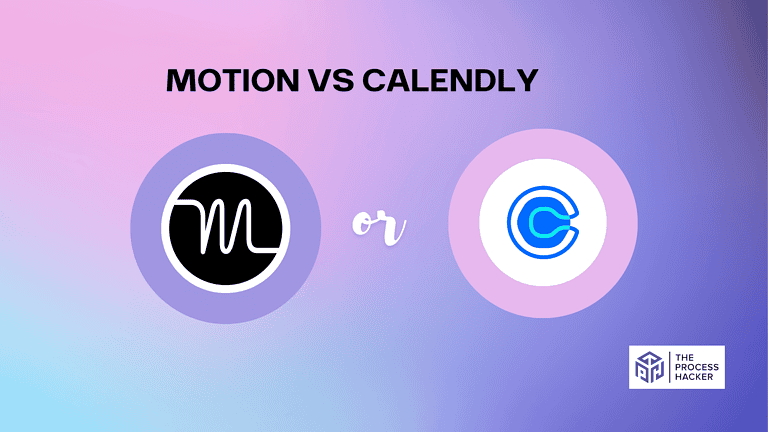How Much Sleep Do You Need To Be Productive?
As a small business owner, I know how tempting it can be to sacrifice sleep to get ahead.
We’re often told that success comes with hard work and long hours, so getting less sleep seems like a no-brainer if it means getting more done. As high performers, we thrive on accomplishing tasks and reaching our goals.
But what if I told you that cutting back on sleep could actually hinder your productivity? That’s right, the one thing we try to save time on may just be the key to our success.
So, let’s dive into the question that has been plaguing busy entrepreneurs and go-getters:
How much sleep do you really need to be productive?
How Much Sleep Do You Need By Age?
The National Sleep Foundation guidelines say that healthy adults require seven to nine hours of sleep to maintain a healthy and active body. Toddlers, young kids, and teenagers need more sleep than adults to enable better development and growth. However, people over 65 years old need about the same or less sleep than adults every day.
The National Sleep Foundation summoned a panel of 18 experts from medicine and science to determine how much sleep people need by age. The experts reviewed numerous validated studies regarding sleep duration and its health outcomes, such as depression, cardiovascular disease, diabetes, and pain.
The panel recommended the following amounts of sleep for these specific age groups:
| Age Group | Age Range | Recommendation |
|---|---|---|
| Newborns | 0-3 months | 14-17 hours |
| Infants | 4-11 months | 12-15 hours |
| Toddlers | 1-2 years | 11-14 hours |
| Preschoolers | 3-5 years | 10-13 hours |
| School-age children | 6-13 years | 9-11 hours |
| Teenagers | 14-17 years | 8-10 hours |
| Young adults | 18-25 years | 7-9 hours |
| Adults | 26-64 years | 7-9 hours |
| Older adults | 65+ years | 7-8 hours |
The above recommendations are guidelines for how much sleep you need every night according to age. However, some people may require more, and some can handle less. It depends on the person and their circumstances.
How Much Sleep Do I Need?
The guidelines from the National Sleep Foundation are a rule of thumb for how much sleep you need by age. However, sleep is a personal experience, and it is up to you to determine how much sleep you need, as it differs from person to person.
The amount of sleep is listed in recommended ranges. To determine the amount of sleep you need, you should consider your daily activities, overall health, and typical sleep routine. And there are a few questions that can help you to figure out how much sleep you need:
- Do you feel healthy, productive, and happy with the amount of sleep you are getting? Do you need more hours of sound sleep to kick it into a higher gear?
- Does your job require you to be productive or alert to perform well? How productive are you at work during the day?
- Do you feel restless and sleepy while performing your daily activities?
- Do you drink caffeine? How dependent are you on caffeine to stay alert during the day?
- Do you have a physically demanding job or exercise regularly? How active are you during the day?
- Do you have preexisting health conditions? Do you have higher risks of any diseases?
- Do you currently face or have a history of sleep disorders?
Using The National Sleep Foundation’s recommended guidelines and the answers to the above questions, experiment with your sleep. When going to bed, give yourself a number and try it out.
See how you feel the next day, factoring in your daily activities and overall health. Keep adjusting until you find your optimal amount of sleep.
How to Improve Your Sleep Schedule
After setting a sleep goal for the hours you will sleep, you should establish a good schedule to follow. Begin by putting the rest at the top of your priority list.
This means budgeting for the specific number of hours required to get great sleep while balancing your work and social activities. Cutting out some hours of sleep might be tempting but will hurt you in the long run, as sleep is vital to staying healthy physically and mentally.
You and your children can get better rest by incorporating some of the following sleep-related habits and bedroom settings:
#1) Try to wake up and fall asleep at the same times
Consistency is vital when it comes to your sleep schedule. Setting a regular time to wake up and go to bed helps regulate your body’s internal clock or circadian rhythm. This consistency allows your body to settle into a natural sleep pattern, reducing the time you spend tossing and turning each night.
Over time, this habit not only makes falling asleep easier but also enhances the quality of your sleep cycles, ensuring you wake up refreshed and ready to tackle the day. By sticking with this pattern, you’ll notice a significant improvement in both your mental clarity and energy levels.
Maintaining enough sleep can mitigate the effects of sleep deprivation and reduce sleep debt, which is critical for your overall sleep health.
According to sleep medicine experts, adhering to these sleep habits is foundational for long-term wellness. Furthermore, the Sleep Research Society highlights the importance of achieving sufficient REM sleep each night to support cognitive functions and emotional health.
If you consistently achieve enough sleep, you can reverse the negative impacts of being sleep-deprived and significantly improve your daily productivity and health.
#2) Have a before-bed routine to get you ready for sleep
Have you ever noticed how kids have bedtime routines? There’s a reason for that! As adults, we need to unwind too. About an hour before you plan to hit the hay, start shifting into relaxation mode. This could involve:
- Dimming the Lights: Bright lights signal to your brain that it’s time to be awake. Lowering the lights helps your body start producing melatonin, a sleep-inducing hormone.
- Unplugging from Screens: The blue light emitted from phones, tablets, and TVs can disrupt your sleep. Switch to a book, listen to calming music, or take a warm bath instead.
- Gentle Stretching or Meditation: Easing tension in your muscles and calm your mind.
Finding a bedtime routine that works for you can be a game-changer. It signals to your body that it’s time to rest and recharge, helping you wake up feeling refreshed and ready to take on the day.
#3) Have a comfortable mattress, bedding and pillows
The quality of your mattress, bedding, and pillows can dramatically impact the quality of your sleep. Investing in a mattress that supports your body well and aligns with your sleeping habits is crucial. High-quality bedding and pillows contribute to a comfortable sleep environment, helping you fall asleep faster and stay asleep longer.
This setup not only improves the quality of your rest but also ensures you wake up rejuvenated and ready to handle the challenges of the day. Make it a priority to choose materials and firmness that suit your personal preferences, as comfort is highly individual and can be the difference between a good night’s sleep and a great one.
Ensuring that your sleep needs are met is vital for your mental and physical health. Too little sleep can disrupt your sleep-wake cycle and deteriorate cognitive functions and physical well-being.
According to clinical sleep medicine, maintaining consistent sleep patterns and achieving deep sleep are essential for holistic health. This perspective underscores the importance of configuring your sleeping environment to support your unique sleep needs and promote a normal sleep experience every night.
#4) Optimize the lighting and temperature of the bedroom
Your bedroom should be a haven for sleep, not a source of distractions. Here’s how to create the ideal conditions for a restful night:
- Block Out the Light: Invest in blackout curtains or an eye mask to eliminate any unwanted light that might disrupt your sleep.
- Keep It Cool: Most people sleep best in a slightly cool room, around 65°F (18°C).
- Silence the Noise: If you live in a noisy environment, consider using earplugs or a white noise machine to create a peaceful atmosphere.
- Choose Soothing Scents: Lavender essential oil is known for its relaxing properties and can help you drift off to sleep more easily.
By taking control of your sleep environment, you’re not just making your bedroom more comfortable – you’re actively setting yourself up for a more energized, focused, and productive day.
#5) Put the electronics away
We all love our gadgets, but they can be significant sleep disruptors. The blue light emitted from screens can suppress melatonin production, making it harder to fall asleep. Here’s how to create a tech-free zone before bed:
- Silence Notifications: Turn off those tempting pings and buzzes so you won’t be tempted to check your phone every few minutes.
- Enable Do Not Disturb: This mode will block calls and texts, allowing you to truly disconnect.
- Store Devices Out of Sight: Place your phone, tablet, and other devices in another room to avoid the temptation of scrolling before bed.
By creating a digital detox zone, you’re giving your brain a chance to unwind and prepare for sleep, setting the stage for a more productive and enjoyable day ahead.
#7) Do not eat or drink close to bedtime
To promote better sleep quality, it’s advisable to finish dinner at least three hours before bed. Additionally, try to avoid drinking any fluids two hours before bedtime.
This helps prevent sleep disruptions from trips to the bathroom and can aid in preventing indigestion, which is often exacerbated by lying down soon after eating. By giving your body ample time to digest and settle before you sleep, you encourage a deeper, more uninterrupted rest, helping you wake up more refreshed and ready to tackle the day.
#8) Especially avoid caffeine and alcohol before bedtime
Caffeine and alcohol can significantly impact your sleep quality. It’s wise to avoid caffeine at least 10 hours before bedtime, as it can stay in your system and keep you alert when you should be winding down.
Similarly, steer clear of alcohol for at least three hours before you go to sleep. Although alcohol might seem to help you relax, it actually disrupts your sleep cycle, leading to a less restful night.
Monitoring your intake of these substances is crucial; it helps maintain a balance that supports restful sleep, enabling you to wake up refreshed and ready to take on your day with vigor.
However, not only the quantity of sleep matters, but the quality also does. Focus on getting non-interrupted, restorative rest that leaves you. Furthermore, you can enhance your sleep routine to help boost the quality and quantity of sleep that you have.
Sleep Matters
Sleep is a vital element of any human being’s life, and a rested brain is a more productive brain. A well-rested person can perform daily activities efficiently and quickly. Having a sound sleep will help you be healthier and achieve whatever you put your mind to.
To learn more about your own sleep, you should check out the National Sleep Foundation Sleep Diary to track your sleeping habits every week. It will provide insight into your sleeping patterns and needs.
However, if you or a family member has severe sleep issues or circumstances, consult a doctor or health care professional to determine the cause and sort out your sleep-related issues. You can also get a regular check-up to benefit your overall health.
Final Thoughts on Getting Those Hours of Sleep
There you have it, folks; the question of how much sleep you need to be productive remains as mysterious as that missing left sock in your laundry hamper.
But fear not, my fellow night owls and sleep enthusiasts, because while the amount of sleep may vary from one person to another, the importance of getting enough rest cannot be overstated. From improved memory and concentration to better overall health and mood, a good night’s sleep is crucial for our physical and mental well-being.
So go ahead and treat yourself to those extra Zzz’s, your body will thank you. And let’s not forget about the power of naps, too; they’re like mini vacations for our tired minds!
Remember, though, that quality over quantity is vital when it comes to sleeping habits. So put down that cup of coffee, turn off that Netflix binge-watching session, and prioritize your sleep.
And who knows, maybe one day we’ll finally unravel the mystery behind exactly how many hours of shut-eye we genuinely need in this crazy world. But until then, sweet dreams, my friends!







